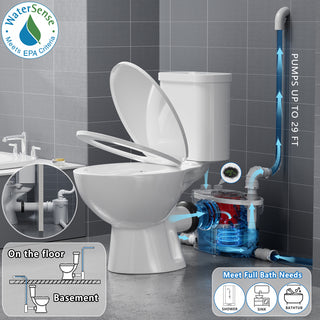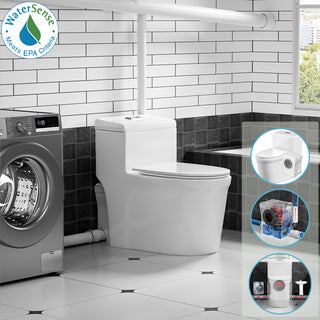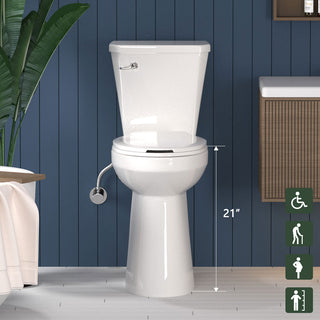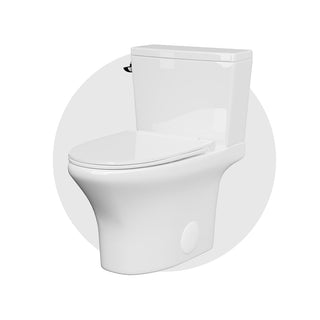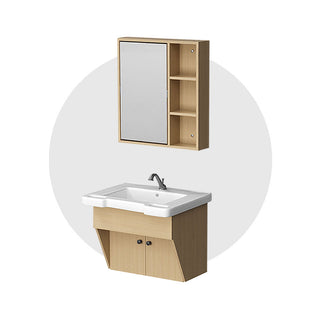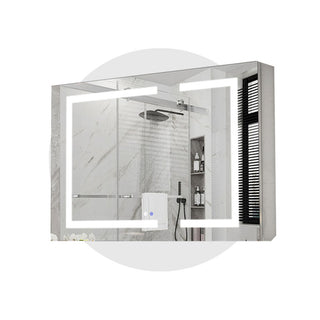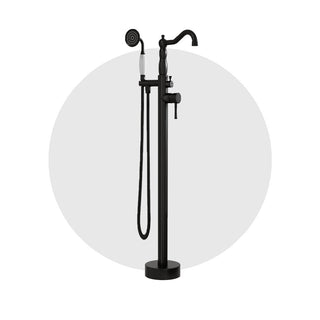If you're considering installing a macerator toilet in your home, cabin, or mobile setup, you might be wondering whether it can discharge waste into a grey water system. The answer is clear: NEVER.
While macerator toilets offer greater flexibility in plumbing layouts, they are not permitted to drain into grey water systems. Let’s clarify the differences between waste types and why toilet waste must always be kept out of grey water.
Understanding Grey Water vs. Black Water
Before we talk about plumbing options, it's important to understand the difference between grey water and black water:
- Grey water includes relatively clean wastewater from baths, showers, bathroom sinks, washing machines, and sometimes kitchen sinks. While not drinkable, it can often be filtered and reused for irrigation or flushing.

- Black water, on the other hand, refers to sewage from toilets and anything containing human waste. Because of its higher risk of pathogens and contamination, black water must be treated with much stricter methods.
Toilet waste—including that from a macerator toilet—always qualifies as black water. Even though macerating toilets grind up solids and pump out the waste, they do not change the nature of the waste itself.
What Does a Macerator Toilet Do?
A macerator toilet is designed to allow toilet installation in places where traditional gravity-fed drainage isn’t feasible. It uses a built-in pump and sharp blades to grind solid waste into a slurry, which is then pumped through a small-diameter discharge pipe—sometimes vertically or across long horizontal distances.
This flexibility makes them ideal for basement bathrooms, attics, garages, and mobile units. However, this convenience does not mean the toilet can discharge into any type of system—especially not a grey water system.
3 Reasons Why You Should Never Route a Macerator Toilet Into Grey Water Lines
1. Toilet Waste Is Black Water, Not Grey Water
No matter how it's discharged—whether by gravity or through an upflush macerator pump—toilet waste always contains human waste and pathogens. Grey water systems are designed for relatively clean wastewater like that from sinks and showers. Introducing black water into a grey water system can result in serious cross-contamination, odors, and system failure.
2. It Poses Serious Health and Environmental Risks
Grey water systems aren’t equipped to treat the high bacterial load and harmful microorganisms present in toilet waste. Sending black water through them can contaminate the environment, harm local water sources, and expose people to health hazards through improper handling or reuse.
3. It Violates Plumbing Codes in Most Regions
Most building codes—including those in the U.S., U.K., Australia, and Europe—explicitly prohibit connecting toilet waste to any grey water system. Violating these codes can lead to:
- Fines or legal penalties
- Expensive system repairs
- Liability for environmental damage
- Unsafe living conditions
Always consult local regulations before planning your drainage system—and never route a macerator toilet into grey water lines.
Proper Alternatives
If your goal is to simplify your drainage layout or make better use of space, there are compliant options to consider:
✅ Install your macerator toilet with proper black water discharge.
Even if a septic tank or sewer line is far away, macerator toilets are designed to pump waste over long distances.
✅ Use your macerator system to handle additional grey water sources when appropriate.
 Most macerator systems—commonly used in upflush toilet setups—come with multiple inlets on the pump, allowing additional fixtures like sinks, showers, or washing machines to discharge grey water safely into the black water drainage system through a single unit. Just be sure to follow manufacturer guidelines and comply with local plumbing codes.
Most macerator systems—commonly used in upflush toilet setups—come with multiple inlets on the pump, allowing additional fixtures like sinks, showers, or washing machines to discharge grey water safely into the black water drainage system through a single unit. Just be sure to follow manufacturer guidelines and comply with local plumbing codes.
* For detailed guidance on connecting your shower to a macerating toilet system, check out our article How Do You Plumb a Shower to a Macerating Toilet?
Conclusion
While a macerator toilet gives you much more freedom in bathroom placement and plumbing design, it must always discharge into a black water system—not grey water. Connecting a toilet to a grey water system is unsafe, non-compliant, and can cause serious problems down the line.
If you’re unsure about your setup, consult a licensed plumber and check local codes to ensure you’re making the right connections—for both your home and the environment.
FAQs
Q: Can toilet waste go into a grey water system?
A: No. Toilet waste is classified as black water and must never be directed into a grey water system.
Q: What happens if I connect a toilet to a grey water system?
A: Doing so can contaminate the system, cause foul odors, violate plumbing codes, and lead to fines or costly system failures. Always follow local regulations.
Q: Can I connect my shower or sink to a macerator system?
A: Yes. Most macerator pumps used in upflush toilet setups come with extra inlets that allow grey water from showers, sinks, or washing machines to be routed through the same pump and discharged safely into the black water drainage system.


